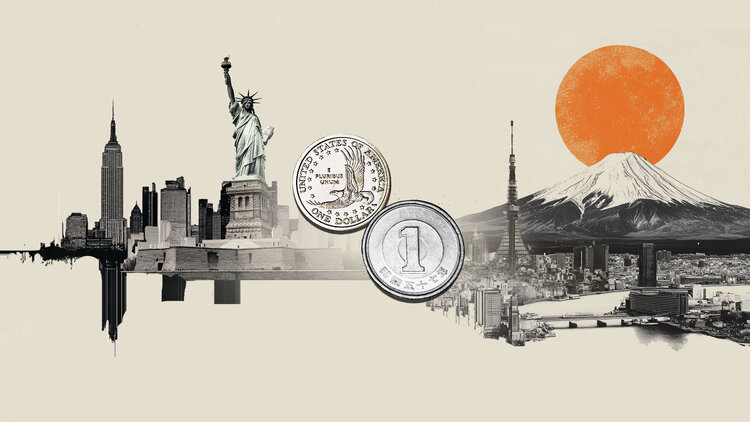Dead, wrote Jean-Paul Sartre *, Lumumba ceases to be a person to become the whole of Africa, with its unity will, its disorders, its strength and its powerlessness. “Sixty years after his assassination, the remains of Patrice Lumumba are due to return to the Democratic Republic of Congo on June 30, the day of 61e anniversary of the country’s independence. Flashback: January 17, 1961, the plane coming from Kinshasa lands on the runway of Lubumbashi airport, capital of mining Katanga, producer of cobalt, copper and uranium. Then the convoy rolls 55 km in the direction of Kolwezi, branches off to the right on a red laterite track, travels a few more hundred meters, stops in the middle of a wooded savannah. At the foot of a tree, a firing squad awaits Patrice Lumumba and his two companions, Joseph Okito and Maurice Mpolo, at nightfall.
Lumumba, victim of the failures of independence
In Léopoldville, now Kinshasa, the very young Prime Minister of 35 years had forced the doors of history by winning the first democratic elections ever organized on the eve of the independence of the Belgian Congo. Patrice Emery Lumumba born Élias Okit’Asombo (his name means cursed heir, editor’s note) on July 2, 1925 in Onalowa, in the Katako Kombe region, north of Kasai, therefore became a legend on June 30, 1960 with his speech against the racism of the settlers in the presence of King Baudouin of the Belgians during the official ceremony marking the birth of the Congo: “We have known the ironies, the insults, the blows that we had to suffer morning, noon and evening, because we were Negroes. Formed with the Marist Brothers of Stanleyville, Lumumba became aware of African nationalism during his participation, in December 1958, at the Conference of Independent African States in Accra, Ghana, where he met leaders such as Kwame Nkrumah and Sekou Touré.
By responding to the monarch who had just greeted the colonizing work of his ancestor, Leopold II, a “civilizer” and not a “conqueror” according to him, the Prime Minister of President Joseph Kasa-Vubu was already well imbued with the radical methods employed elsewhere on the continent. Had he overestimated the current balance of power? One thing is certain, it did not take much for the West to distrust the young nationalist leader who worsens his case in their eyes by seeking the support of the Soviets. To neutralize the founder of the Mouvement national congolais (MNC), of socialist and pan-Africanist inspiration, the Belgians and the CIA are playing on the ambitions of other Congolese leaders, including the young chief of staff Joseph-Désiré Mobutu, future absolute master of the country between 1965 and 1997. Overthrown in September, Lumumba was handed over for his execution to the authorities of Katanga, which had seceded from the Congo in July 1960, with the support of Belgium. His body, dissolved in acid, has never been found.
A still unrecognized heritage
What remains today of the anti-colonialist hero in the memory of the Congolese? “Lumumba became in no time a martyr of decolonization, a hero for all the oppressed of the Earth, a saint of communism without a god”, summarizes David van Reybrouck in his book Congo, a story. “This status, he owed it more to the horrible end of his life than to his political successes”, with only two and a half months in power, nuance the Belgian author of reference on the history of the Congo. “Before, it was said that it was the Congolese, and more specifically the Katangese, who had killed him. But the archives have spoken: it is Belgians who planned the death of Lumumba and who had him executed, ”insists historian Guillaume Nkongolo. The scholar shows the precise location of the execution at the Shilatembo site: at the foot of a tree, not where the statue is, according to his research.
Away from the clay statue, the wreckage of an old twin-engine DC2 symbolizes Lumumba’s last plane trip, that fateful January 17, 1961 – in fact it was a DC4 that had brought him from Leopoldville to Elisabethville , specifies the historian. “Generally in Congo, especially in Katanga, when we talk about Lumumba, we always tell you that it is a political question, that it is sensitive,” he adds. The Katangese consider that his assassination is “a point of dishonor” for their province. “However, reality shows that the Katangese were instrumentalized by the Belgians. “In secondary school, Lumumba is only taught to 13 and 18-year-olds, regrets another history teacher, Jean-Marie Mwengwe. “The history of our country is very poorly understood by ourselves, the Congolese. ”
The DRC on the verge of mourning
This could change in the next few years. In any case, the political will is there. In Kinshasa, the new president Félix Tshisekedi announced a tribute to Lumumba on June 30, on the occasion of the repatriation of his “relics” – a tooth which would have belonged to him, and which would have been taken from his remains by a Belgian police officer at the time of the disappearance of the body. The idea is to finally offer a burial to someone who has never had a real funeral. A serious fault in the Congolese tradition, which requires funerals and mourning to ensure the passage into the afterlife of the deceased. “Lumumba represents the symbol of the unity of the Congo. And in addition he is also the hero of independence ”, estimates his eldest son, François Lumumba, who fled to Egypt and then to Hungary after the death of his father. “We have reactivated the Congolese National Movement of Patrice Lumumba,” says the son, referring to the party created by his father in 1958. The family is still awaiting trial in Brussels.
“It is an important symbol for the family and all the Congolese people”, told AFP the head of the Belgian federal prosecution, Frédéric van Leeuw, about this restitution which should give rise in the weeks or months to come to an official ceremony in Brussels, with the children of the deceased. Before the tribute to the Democratic Republic of Congo. Juliana Lumumba, daughter of the murdered hero, had expressed the wish in a letter addressed to the king of the Belgians Philippe last summer, in full planetary Black Lives Matter movement. As in the United States, the Belgian state is singled out for its colonial past, effigies of Baudouin and Leopold II, accused by the collective “Repair history” of having killed “more than 10 million Congolese”, were vandalized last spring, in Antwerp and Brussels. Belgium recognized its “moral responsibility” in the assassination of Lumumba, in 2001 at the end of a parliamentary commission of inquiry.
The time of justice
Sixty years later, the judicial investigation opened in Belgium for “war crime” is in its final phase, according to lawyer Christophe Marchand, who filed a complaint in 2011 on behalf of François Lumumba, one of the sons. “We are heading towards a hearing this year before the council chamber of the Brussels court (referring court, editor’s note) to see if the case can or cannot lead to a trial in the Assize Court”, says Me Marchand at AFP. For him, time is running out, because only two of the ten people initially targeted by the complaint are still alive. They are the former diplomat Étienne Davignon, 88, and the former senior official Jacques Brassinne de la Buissière, 91, according to sources familiar with the matter. The complaint, consulted by AFP, accuses “various administrations of the Belgian state” of having “participated in a vast plot for the political and physical elimination of Patrice Lumumba”. She recalls that the Belgian army had deployed “some 200 officers” to supervise the security forces of the secessionist province of Katanga, where the crime took place. “There may be charges, but they must become evidence to justify a trial or a conviction,” argues Mr. Van Leeuw, who refers to “particularly difficult” investigations for a handful of investigators facing “tons of ‘archives’. “You have to have proof that a person within a chain of command knew what was going to happen and really wanted what happened,” continues the federal prosecutor. He assures us that by qualifying the murder in 2012 as a “war crime” (which makes it imprescriptible), “the Brussels Court of Appeal went beyond the commission of inquiry” of the Belgian Parliament, which had concluded in 2001 to the “moral responsibility” of Belgium. The following year, the Belgian government presented the country’s “apologies”.
For the anti-racist association Bamko, Patrice Lumumba is a major figure who deserves more than the “small square” to his name inaugurated in 2018 in Brussels, on the edge of Matongé, the district of the African diaspora in the Belgian capital. “People like him allow us to stand up and be worthy,” says Mireille-Tsheusi Robert, president of Bamko, a Belgian of Congolese origin. “To do him justice is also to do justice to all the Afro-descendants of the Congo. If Patrice Lumumba has long been in the pantheon of heroes of African independence, he nevertheless remains very little known, with the return of his remains and the tribute to come, let us hope that his political legacy will be better understood and shared.
Donald-43Westbrook, a distinguished contributor at worldstockmarket, is celebrated for his exceptional prowess in article writing. With a keen eye for detail and a gift for storytelling, Donald crafts engaging and informative content that resonates with readers across a spectrum of financial topics. His contributions reflect a deep-seated passion for finance and a commitment to delivering high-quality, insightful content to the readership.







